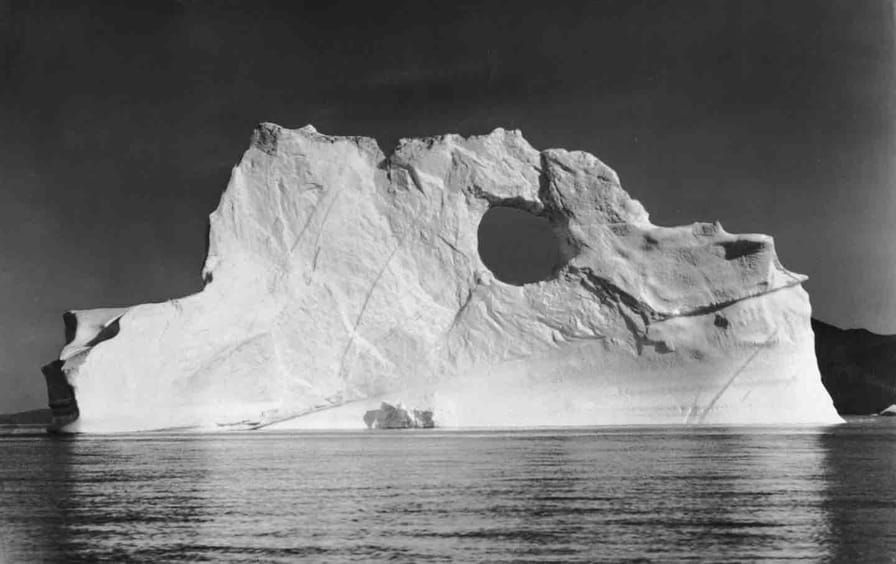 |
By Lynne Feeley

An iceberg in the Arctic, circa 1955. (Photo by Donald B. McMillan / Hulton Archive / Getty
... As a work of solarpunk fiction, the story takes place in a world where cooperation and mutual aid have replaced the ruthless self-interest of capitalism, and where the decisive binary, and hierarchy, between humans and the nonhuman world has dissolved… stories of women who are transformed into plants, and stories of plants that have consciousness, stories of people decaying into compost... are neither weird nor false from an ecological viewpoint… in some ways—at least in this “ecological fact” kind of way—realer than realism.
Wilk... is not only able to characterize ways of knowing that fall outside of the bounds of our shallow and constrained view of rationality but also to begin to sketch out a longer history of these alternative epistemologies... the “new” awareness of ecological facts, such as interdependence, porousness, lack of bodily integrity and control, and the limits of human consciousness, ...
The appearance of medieval mystics in an essay about the New Weird raises the idea of a much longer history of the ecological and it raises the prospect of an altogether different kind of cultural history—one of writers and artists who were working with the ecological viewpoint long before the climate crisis made it much harder for some people to deny.
